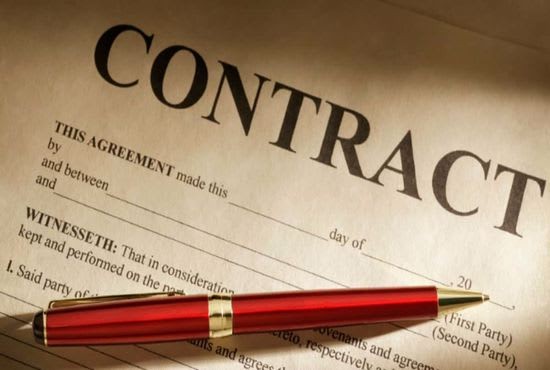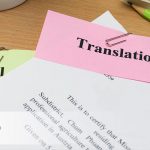
7 Tips for Legal Document Translation
If you have documents that you need to be translated for legal purposes, then you understand that the stakes are high. Therefore, you have to make sure that everyone understands exactly what is being said. Whether you are a client or a lawyer, you know that it is impossible to make a decision that is in the best interests of yourself or your client unless you understand exactly what is being discussed. The legal field is filled with jargon, and it is difficult for someone without industry experience to understand what is happening. If the documents are in another language, this complicates the process even further. That is where a professional legal translation can be helpful. On the other hand, the quality of a legal translation can vary widely from company to company. If you want to ensure quality results, you have to place yourself in the best position to be successful. What are some of the most important tips that you should keep in mind to ensure the quality of your legal translation?
1. Clearly Explain What Has to Be Translated
In the legal field, time is of the essence. When you get your documents back, you want to know they are accurate. Therefore, you need to clearly specify what needs to be translated. It is not unusual for legal documents to be hundreds of pages long. If you do not need every page translated, you need to be clear about that. Sometimes, certain information does not have to be translated. For example, if address information, handwritten notes in the margin, cover pages, and signature pages do not need to be translated, let the translator know. Furthermore, if they do need to be translated, clearly specify that ahead of time. This will save you a significant amount of time and money.
2. Provide Context for How the Document Will Be Used
The person translating the document on the other side needs to know how that document is going to be used. When it comes to a legal translation, context is everything. If they are asking how you are going to use the document in court, it is because this is going to impact how the document is translated. Furthermore, if the documents going to be used in an official court case, it more than likely needs to be certified. If your translator understands who the audience is, this will make it easier to accurately translate the document in a way that will meet your needs. Furthermore, this will also help you save money, as some documents could be easier to translate than others.

3. Discuss a Glossary of Key Terms
It is entirely possible that a word in the English language has multiple equivalents in another language. The reverse could also be true. Therefore, you need to discuss a glossary of key terms. This will be incredibly helpful when it comes to interpreting and using the document in court. If there is a foreign language term that you prefer, make sure it is used consistently throughout your document. That way, it will be easier for everyone to understand what is going on. If you are able to agree on a glossary of key terms before the translation process begins, this can expedite the translation process. This can also reduce the risk of errors becoming pervasive throughout the document later on. Try to discuss a glossary of key terms at the beginning of the translation process, as this will help you set yourself up for success in the future.
4. Review the Dialect Options
A lot of languages have multiple dialects. Some dialects cannot be understood by different dialects of the same language. If there are multiple dialects available, you need to make sure that you select the right one. For example, Chinese is not a single language. There are numerous dialects available including Mandarin, Cantonese, Shanghainese, and other Chinese languages. You need to make sure that you select the right dialect for your purposes. That way, the court will understand you, your client will understand you, and anyone else involved in the case will also understand the document.
5. The Legal System
Particularly if you were having a document translated for a legal system in another country, it is critical to make sure you understand how that legal system work. There could be certain standards to which translated documents are held. Or you may need additional documents in order to have your case heard. Make sure you understand how the legal system operates. That way, you are not surprised if your translated document is not immediately accepted.

6. Consider the Formatting of the Document
When the document is being translated, it is entirely possible that the formatting could change. The document could get longer. The document could get shorter. There are headings that could be changed. Extra paragraph breaks could be added. If there is a specific way you need the document formatted, make sure you let the translator know. If the translation itself is correct but the formatting is incorrect, this is a revision request that could have been avoided. Therefore, specify upfront exactly how you want the document formatted. That way, it is perfect when it is returned to you.
7. Keep the Translator Updated
Finally, you also have to keep a translator updated regarding the court case. If deadlines are changed, the translator has to know. You probably need those documents in order for your case to move forward. Therefore, if there is a date, you have to let the translator know what is happening. Furthermore, if there are changes regarding how the document should be formatted, how the document is going to be used, or if you would like to add additional documents to the translation docket, you need to keep the plans later informed of this. That way, your needs are met when the document comes back.
Professional Translation Services
These are a few of the most important points that you should keep in mind if you have a legal document that has to be translated. When it comes to the legal system, the stakes are always high. Therefore, you have to make sure you are legal document is accurately translated. That is where we can help you.
Here at Etcetera Language Group, we have a tremendous amount of experience when it comes to translating documents for legal purposes. We will be happy to provide you with the assistance you deserve.
More...
Categorised in: Blog, Language Services





